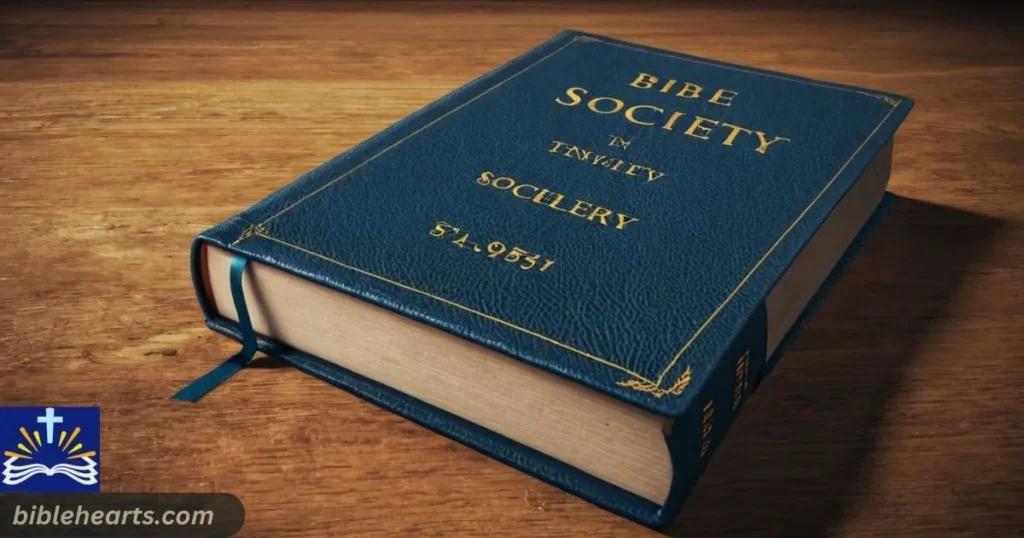“Burning Bibles carries a profound symbol of rejection, often sparking strong emotions and debates about freedom, ethics, and religious beliefs.“
The act of burning Bibles has long been a contentious and emotionally charged symbol across various societies. Whether as a form of protest, rebellion, or defiance, the burning of the Bible transcends the mere destruction of paper; it often reflects a deeper ideological, political, or cultural conflict.
This gesture, while deeply disrespectful to millions of believers, also raises questions about the intersection of religious tolerance, freedom of expression, and public sentiment. In this blog, we will explore the significance of Bible burning from multiple perspectives: its historical roots, cultural implications, and legal consequences.
As we delve deeper into this topic, we will look at instances where Bible burning was used as a tool of rebellion or resistance. From the Protestant Reformation to modern-day protests, Bible burning has symbolized an active rejection of religious authority. In many instances, this symbolic act reflects the tension between freedom of speech and the preservation of religious values in society.
We will also explore how burning the Bible can be perceived as an attack on spiritual truth and the emotional reaction it provokes in the religious community. Understanding these aspects will provide a clearer picture of why this act is so polarizing and the implications it holds for individuals and communities. Ultimately, we will seek to understand whether such an act is justified in the name of personal freedom, or whether it crosses a line that should be respected.
Symbol of Rejection of Religious Beliefs

The burning of the Bible often represents a symbolic rejection of religious beliefs and institutions. For many, the Bible is not just a book, but the foundation of faith, carrying centuries of spiritual and moral guidance. To burn it is to reject everything it stands for, both personally and publicly.
Example: During the Protestant Reformation, Protestants burned Catholic scriptures and papal decrees as an act of defiance against what they saw as a corrupt religious system. For them, this was not just the destruction of texts but an assertion of their right to access and interpret the Bible independently of the Catholic Church. The act symbolized a break from centuries of religious tradition and an embrace of reform.
Example: In recent protests, such as those seen in Iran, burning the Bible has become a symbolic gesture against religious authority and the power of the state to impose religious law. By destroying the Bible, protesters aim to demonstrate their opposition to theocratic governance and their desire for secular freedoms. In these instances, the Bible is burned as a powerful statement rejecting the influence of religious institutions on political life.
Disrespectful Act Towards Spiritual Truth
Burning the Bible can also be perceived as a disrespectful act towards spiritual truth. For many Christians, the Bible is seen as the literal word of God, and its sanctity is of the highest importance. To burn it is an affront to their faith, suggesting that the spiritual truth it contains is not only dismissed but actively destroyed.
Example: During the Nazi era, the burning of the Bible, along with other books, was part of the cultural cleansing process designed to eliminate opposing ideologies and ideologies associated with Christianity. The regime considered the Bible, especially Christian teachings on compassion and equality, a threat to Nazi ideals. For many Christians in occupied countries, the burning of the Bible was a devastating blow to their faith, as it symbolized not only an attack on religion but an attempt to eradicate truth itself.
Example: In the Cultural Revolution in China, religious books, including the Bible, were burned as part of the Communist Party’s effort to replace traditional values with Marxist-Leninist ideology. The Chinese government aimed to suppress any competing belief system that contradicted the Party’s authority. In this context, burning the Bible was viewed as an attack on not only spiritual truth but also individual freedom and cultural heritage.
Historical Instances of Bible Burning
Throughout history, Bible burning has occurred in several significant contexts, often as part of broader cultural, political, or religious conflicts. Understanding these instances offers insight into how this act has been used as both a protest and a tool of oppression.
Example: One of the most famous instances of Bible burning occurred during the Protestant Reformation in the 16th century. Protestants, in their opposition to the Catholic Church, often burned the papal decrees and the Catholic translations of the Bible as an act of rebellion. For example, John Wycliffe’s Bible translation, which was rejected by the Catholic Church, was burned along with the works of other religious reformers. This was a symbol of the clash between emerging Protestantism and entrenched Catholicism.
Example: Another historical example is from Nazi Germany, where books, including religious texts like the Bible, were burned in public ceremonies. The Nazis saw the Bible as a threat to their ideological control and burned copies as part of their broader anti-Semitic and anti-religious agenda. This act was intended not just to eliminate religious influence but to reshape the culture into one aligned with Nazi ideology. The Bible burning was a clear statement of opposition to the spiritual truths it contained.
Fahrenheit 451: A Deep-Dive
Ray Bradbury’s Fahrenheit 451 is a well-known dystopian novel that features the burning of books, including the Bible, as part of a society’s effort to control knowledge and suppress independent thought. The novel provides a fictional yet thought-provoking exploration of how the act of burning books, including sacred texts like the Bible, can be used as a means of oppression and cultural control.
Example: In the novel, firefighters burn books to maintain the status quo in a society where independent thinking is suppressed. The protagonist, Guy Montag, is a fireman who initially burns books but later joins the resistance after questioning the role of book burning in a society that limits intellectual freedom. This act of book burning in Fahrenheit 451 is used as a tool of state control, aiming to remove any form of dissent or alternative perspectives that could challenge the government’s authority.
Example: The Bible burning in Fahrenheit 451 represents the extreme censorship and oppression of individual thought. Bradbury’s depiction reflects the real-world dangers of allowing the suppression of ideas and beliefs, highlighting how the destruction of sacred texts can erase cultural and spiritual knowledge that has been passed down through generations. The Bible, as the central book of many religious communities, becomes a symbol of resistance to a society that seeks to control its citizens by eliminating critical thought.
What is the Proper Way to Dispose of a Ruined Bible
Bible Burning in Different Cultures
The act of burning the Bible has different meanings and implications across cultures, shaped by the historical, political, and religious contexts in which it occurs. In some instances, it may symbolize a rejection of religious authority, while in others it is used as a political statement against government control or foreign influence.
Example: In some parts of Middle Eastern countries, Bible burning has been used as a form of protest against Christianity or Western influence. For example, during political unrest in places like Syria or Iraq, protesters have burned Bibles to express their opposition to Western cultural values or the perceived influence of Christianity in their societies. This act is often a reflection of deeper political and religious tensions, where religion is seen as a tool of imperialism or foreign interference.
Example: Conversely, in North Korea, Bible burning is a symbol of resistance against the Christian missionary presence in the country. North Korean authorities have long targeted Christianity as a threat to their regime, and the act of burning Bibles has been used as a public demonstration of their opposition to foreign religious ideologies. This reflects the tension between religious freedom and authoritarian rule, where the Bible represents both spiritual resistance and a challenge to the regime’s control.
The Purpose of the Bible in Society

The Bible serves as more than just a religious text; it plays a crucial role in shaping cultural norms, moral values, and the ethical framework of societies around the world. For many, it provides the foundation for laws, social structures, and individual behavior.
Example: In Western societies, the Bible has influenced the development of legal systems, where Christian moral teachings have shaped ideas of justice, fairness, and human rights. Many of the values enshrined in these societies, such as the sanctity of life and the importance of charity, are drawn directly from biblical principles.
Example: In African cultures, the Bible is often a source of spiritual guidance and community unity. Many communities use biblical teachings to resolve conflicts, strengthen relationships, and maintain social harmony. In this context, burning the Bible represents not only an attack on the text but also on the foundational values that hold the community together.
Question Burning Bibles and Its Impact
1. What does Bible burning symbolize?
Answer: Bible burning is often used as a symbol of rejection against the religious authority that the Bible represents. For some, it is a form of protest against religious institutions, while for others, it can symbolize a rejection of spiritual beliefs or cultural norms associated with Christianity. Historically, it has been employed as a tool of resistance, often to challenge the dominant religious or political systems.
2. Is burning the Bible considered illegal?
Answer: In many countries, burning the Bible is not explicitly illegal, as it falls under freedom of speech and expression. However, it can lead to public outcry and may be seen as hate speech or a form of religious intolerance in some cultures. In places with strong religious laws, such acts may be considered blasphemous and punishable under the law.
3. What historical events have involved Bible burning?
Answer: Bible burning has been part of several historical events. During the Protestant Reformation, Protestants burned Catholic scriptures as a symbolic act of rejecting the authority of the Catholic Church. In the Nazi era, the regime burned Bibles, along with other religious texts, as part of their cultural cleansing effort to eliminate ideologies that opposed their control. Additionally, Cultural Revolution in China saw the burning of Bibles as an attempt to suppress religious beliefs in favor of Marxist ideologies.
4. Why is burning the Bible considered disrespectful by many people?
Answer: For many Christians, the Bible is regarded as the literal word of God and holds immense spiritual significance. Burning the Bible is seen as an attack on sacred truth, representing an effort to erase or disrespect the foundation of their faith. It is perceived as a direct challenge to their belief system and values, provoking strong emotional reactions within the religious community.
5. Can Bible burning be seen as a form of protest?
Answer: Yes, Bible burning has been used as a form of protest in various contexts. For example, in some political protests, it has symbolized opposition to Western influence or religious oppression. In countries with theocratic regimes, burning the Bible can be a way for protesters to reject religious authority and demand greater freedoms. It serves as a powerful symbol of resistance to the status quo.
Conclusion
The act of burning Bibles is a complex and layered action that carries political, religious, and emotional significance. Whether used as a symbol of resistance, a form of protest against authority, or an attempt to destroy spiritual truth, Bible burning provokes strong reactions and highlights the deep tension between freedom of expression and respect for religious beliefs.
By examining historical events, literary representations, and the cultural context surrounding Bible burning, we can better understand its broader implications and the role it plays in shaping modern-day conflicts over freedom, identity, and faith.
While Bible burning remains a controversial act, it serves as a powerful reminder of the importance of respecting different belief systems and ideologies in a diverse world.

Hi! I’m Lauren Reynolds, a creative spirit and lifestyle blogger dedicated to inspiring others through thoughtful reflections and innovative ideas.










